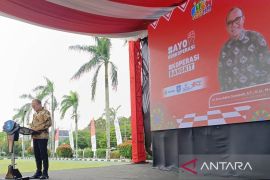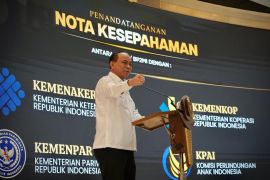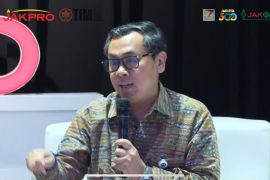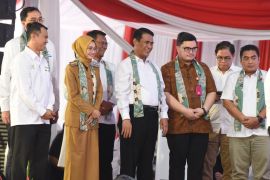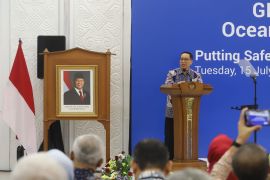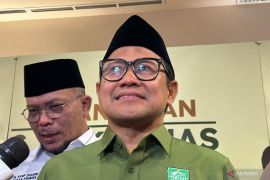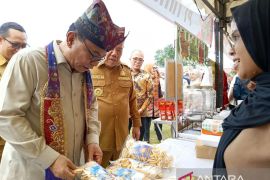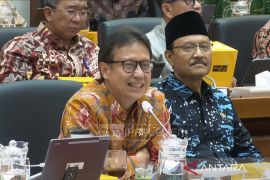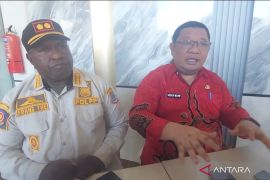- the integrated approch by collaborating with scientists, decision makers, and business sector to ensure the food production sustainability, the poverty alleviation, sustainable development,
- The governments support the sustainability and stability of natural resource utilization through the data- and policy-based management
"All the participants also agree to give more portion of support to the small-sized fishery business and the local community initiatives as well as strengthening the marine resilience from the climate change impact in the Asia region," explained Saut.
Saut continued that another plan of action would be the mitigation and restoration of the fishery habitat and the supporting ecosystem due to the fishing activity and the marine ecosystem degradation. In addition, the Conference also acquiesced the plan of the renewal action as the effort to manage the marine aquaculture and ensure the sustainability of the blue economy concept implementation. Additionally, the Conference also issued the the fishery business inefficiency alleviation by implementing the Natural Capital Accounting and the valid investment data and information opportunity sharing supported by the adequate investment-, logistic-, and infrastructure-oriented assurance as well as the investment security and certainty on the marine and fishery sectors. "ACOFB also recommends the plan of action associated to the renewal marine energy in the Hindia and west Pacific Ocean by establishing a joint research, the scientist community reinforcement, the improvisation on the climate change impact insight for the decision makers, and the initiative on the establishment of the international oceanography committee," explained Saut.
ACOFB-sourced Strategy
According to Saut, ACOFB 2013 also resulted seven approved strategies, among them; the coordinated action to increase investment and collaboration based on the proved approach. This strategy is able to unleash the marine potency in addressing the challenges on the sea water hygiene, food resilience, poverty, and economy development. On the other hand, the strategy can strengthen the resilience against the climate change and the ocean acidification; the Asia regional collaboration increase which is quite instrumental to increase the capacity and erudition to provoke more effective policy and action; the collaboration in all disciplines and sectors; the strengthening and the implementation of the integrated cross-sectoral policy. " The rest strategy includes the funding resource identification; the development of the marine and coastal potency that can be realized by implementing the blue economy concept; and the collaboration strengthening through the existing initiatives," explained Saut.
Saut added that the ACOFB held in Bali, June 18-21, 2013 was inaugurated by the Minister of Marine Affairs and Fisheries of Republic of Indonesia and attended by a number of Asian ambassadors and states's representatives, practiotioners, researchers, academics, NGOs, entrepreneurs and Asian international and regional organizations - which was amounted up to 214 attendees and participants sourced from 42 countries. "The Conference was jointly organized by the Indonesian Ministry of Marine Affairs and Fisheries, the Dutch Ministry of Economic Affairs and the World Bank. In addition, UN's FAO also took part in organizing the ACOFB," added Saut.
For three days, all the sources and speakers have contributed ideas and shared experiences in mainstreaming the role of the sea to support the food resilience and blue economy in the region. The conference was divided into six sessions with the main topic, "Ocean Policy Directive Linkage with Investment Guidance Toward Food Security 2020", "Research Priorities to Secure Food From the Ocean", "Provoking Issues on Oceans, Food Security and Blue Growth", "Identification of Key Issues by Sharing Experiences Formulating and Knowledge in Asia Roadmap Initiatives", "New Ideas and Approaches to Public Private Partnership" and "Oceans, Food Security and Blue Growth: Alignment and Asian Roadmap for Recommendation".
For further information, please contact Anang Noegroho, Acting Director of Data Statistics and Information Center, the Ministry of Marine Affairs and Fisheries
Editor: PR Wire
Copyright © ANTARA 2013

